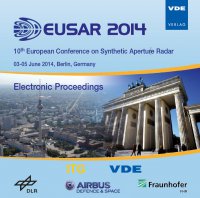Long Term PS-CAL analysis of ERS and ASAR data and comparison to other calibration techniques
Konferenz: EUSAR 2014 - 10th European Conference on Synthetic Aperture Radar
03.06.2014 - 05.06.2014 in Berlin, Germany
Tagungsband: EUSAR 2014
Seiten: 4Sprache: EnglischTyp: PDF
Persönliche VDE-Mitglieder erhalten auf diesen Artikel 10% Rabatt
Autoren:
Giudici, Davide; Villa, Alberto; Recchia, Lisa (ARESYS, Italy)
Monti Guarnieri, Andrea (POLIMI, Italy)
Johnsen, Harald (NORUT, Norway)
Meadows, Peter (BAE Systems, UK)
Mouche, Alexis (IFREMER, France)
Miranda, Nuno; Ottavianelli, Giuseppe (ESA-ESRIN, Italy)
Inhalt:
The long-term external radiometric calibration of spaceborne SAR systems is an important task as this gives information about the instrument in an extended time window, up to the whole mission lifetime, and can reveal slow or small trends that may be hardly noticeable in the short term. Conventional methodologies, such as the ones based on transponders or corner reflectors, provide reliable measures, but may be affected by failures themselves and this may cause difficulties for long-term analyses. Vicarious calibration techniques, that rely directly on SAR data, have proven to have a comparable level of reliability, with cost effectiveness and with no interference to the mission or to the routine operation of the instrument. Such techniques are based on the Persistent Scatterers (PS-CAL) or on the ocean. This paper, first presents a brief overview of the SAR calibration techniques, then reports the outcomes of the PS-CAL on a large number of ERS and ENVISAT ASAR data, covering several years, within the missions lifetime. The analysis is done on the basis of the estimated external calibration time series and includes comparison with transponders, the Amazon rain forest and ocean-based radiometric calibration.


